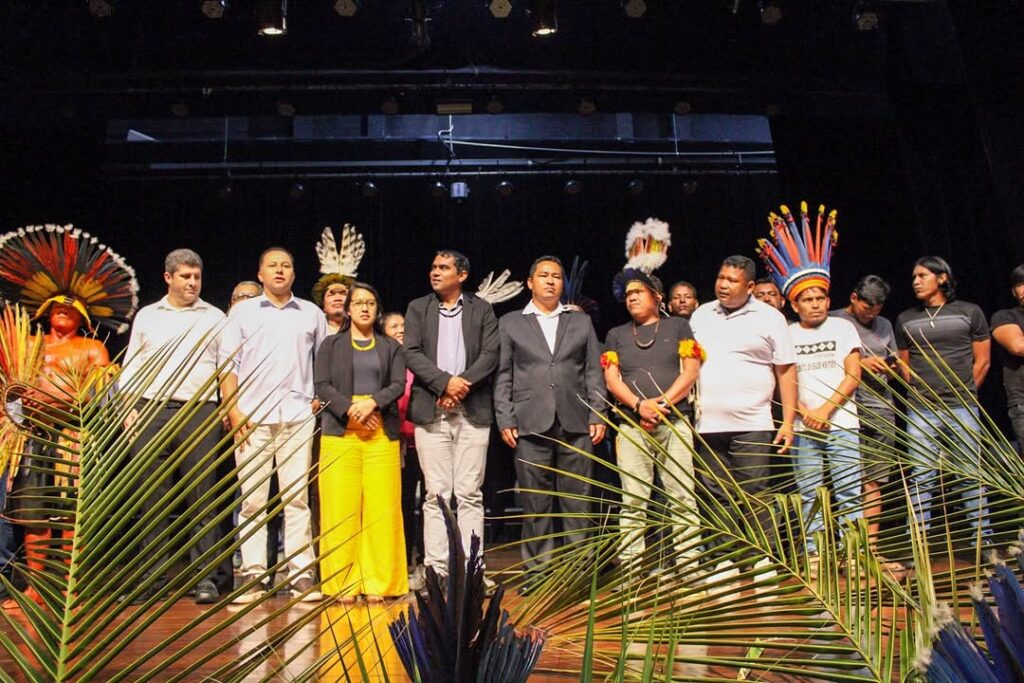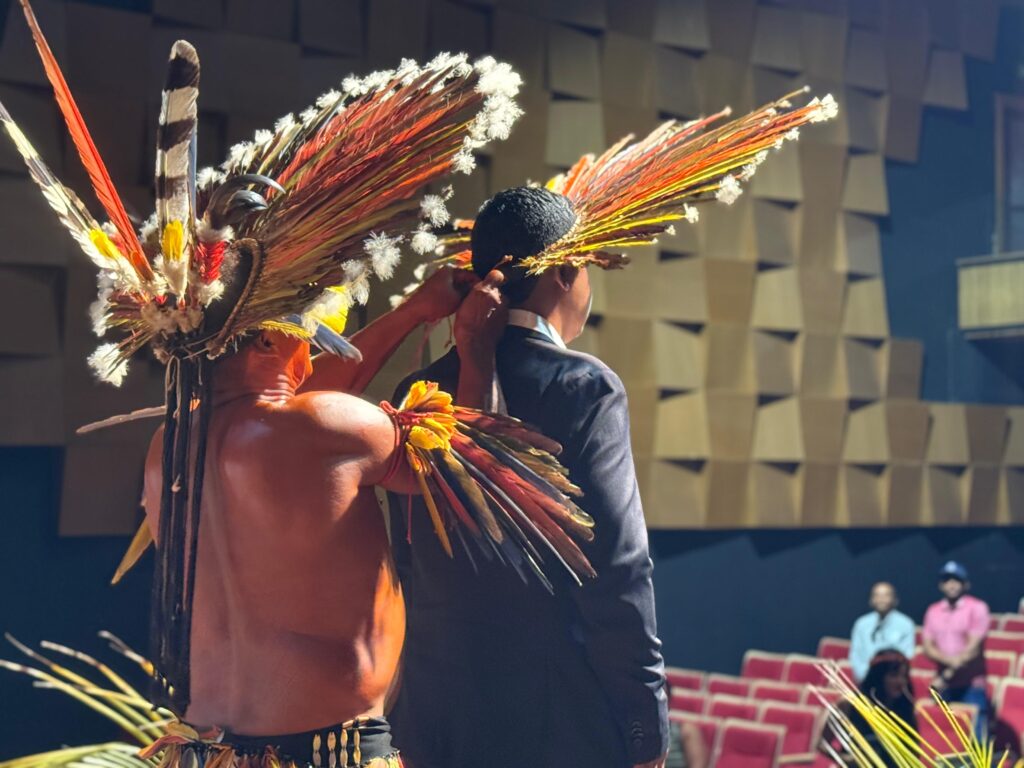The union of the indigenous peoples, leading to the appointment unheard of at the DSEI Cuiaba.
Osmar Rodrigues Aroenoguajiwu the people of the Boe-Bororo, was sworn in at a ceremony held at the Legislative Assembly of the state of Mato Grosso
AI generated audio
“Who’s taking you today is the top ten people served by the Special Indigenous Health District (DSEI) of the state,” said secretary of Health, national department of Health, I Weibe the Tapeba in the swearing-in ceremony of Osmar Rodrigues Aroenoguajiwu the people of the Boe-Bororo, as co-ordinator of the unit said on Thursday (the 15th).

The appointment is a direct result of the mobilization, and the union of the forces of the people Balatiponé-Umutina, the Boe-Bororo, Nambikwara, the Kura-the Bakairi, Enawene Nawe, Manoki, Myky, Haliti-Paresi, Guató, and the Chiquitano, who have fought for it, a representative of an indigenous take on the co-ordination.
“At the beginning of the year, the leaders of which are part of the DSEI Cuiabá, they began to be concerned because it could not but so many of the promises and excuses, the old management. Once you have extended all the rallies in the District, and have been coming up more and more of the leaders, who have joined forces in an agreement that it was time to appoint the native as the native is aware of the problems and Jibran has his / her profile, because it has worked in the health care and have the technical knowledge and the political,” said Stephen, Bororo Taukane, including the mobilization from the very beginning.
In a symbolic gesture of confidence on the part of the ten ethnic groups in its activities, Osmar was received into the possession of the pariko José Mário Kugarugo the Bororo, the important leadership of his people. The crown delivered, could the union of this group with regard to their performance at Dsei.

During the ceremony, a representative from each of the people on this test, including the teacher of the people Haliti-Paresi, Gilmar Koloizomae. He began his speech by recalling a phrase uttered by the leadership of his people back in 1986: ‘One day, the native will speak for itself.’
Gilmar Koloizomae pointed out the importance of the struggle, the ancestor to the achievement of that time, marking the arrival of the first co-ordinator of the indigenous at the DSEI Lakeland. “Going forward, we need to be closer still. We have this responsibility that all of this will turn out well. As for non-indigenous people, and if you want to help us, as it is for us to be able to self-represent, leaving the native speak for themselves. All of our elders, we have put in to school and we are ready to take on anything. And who are you, Osmar, or ten people at the DSEI Lakeland”.
With the blessing of the Osmar spread to the corners of his people, and the presentation of the music, Ipare Ereru and Oieigo. According to Joseph, Mario, and the Ipare Ereru this is the only corner of the conclusion of the race, while the Oieigo, which is traditionally chanted at the funeral, he was chosen for the ceremony, in recognition of its significance.
“It was engaging, intense, and lasted 40 days, and now we’re coming here, to this moment in history. It is a time to celebrate, as it was in the battle of the ten nations, and the moment we choose to do these songs. Istop Ereru it’s a dance of joy. Already Oieigo is only for the people, and it can’t be done, at any time, but today we are going to be made into what we are celebrating the spirit of the ancestors who had fought bravely”.

In his speech, Osmar she expressed her gratitude for the overwhelming support they received, which included not only the leadership but also the servers of the DSEI, and community-based organizations.
“There are two words I carry with me, self-determination, and strength. These are some of the words that we, as warriors, we must carry it with us, because we are all the time in the battle, build something, and that’s all that we’re going to build is not that easy. So much so that we had a reputation to take over: ‘there was a native is going to look like? Things are going to fall apart’. But, it is my hope that you will not, because of all that space that is supports”.
To continue the work, Osmar feel that your experience as a leader of his people, for the three years of his presidency, the Council of the District of the Indian Health (Considi), and its role as an adviser on its own DSEI will play a key role.
“I was the one working with the community as a leader, and we were able to do a good job of it, and I had the opportunity to take on the Condisi. Now, I come as a coordinator for the District, and in view of what is going to work out”.
The new leader, the principal and the urgency lies in the question of transportation, although he did later that action to address this issue are underway. ‘We are evaluating all existing agreements, and we will make the necessary arrangements. In addition to this, there are several outstanding works, and we can read about the inadequacy of the health care facilities for the work of our team. We need to take action to ensure that those professionals have a workplace that is appropriate,’ he said.
Aware of the challenges inherent in this new area of work, Osmar shows up, determined to face them. He believes in the union, and the support of ten people to promote your work, and takes on the mission of paving a path an inspiration for the future of the health of indigenous peoples in the region.

